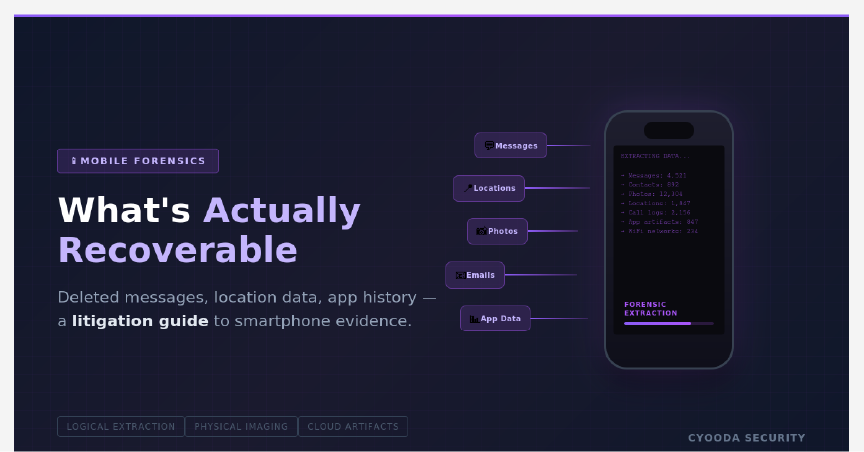This morning in between meeting I was researching prices for solar batteries and was redirected to a Cloudflare "are you human page" that then failed but asked me to open up a terminal and paste in "I am human with a cloudflare ID".
As soon as I saw this my I knew it was bad so I copied the output of the command which was base64 encoded into my goto tool CyberChef!
Needless to say the encoded string was not asking me if I was human! Instead it was attempting to get me to execute a script with malicious intent.

To anyone who may have unsuspectingly followed the prompts, this is what would have happened.
If the downloaded script had been left to run, it would have:
-
Stolen sensitive files (passwords, cookies, keychains, browser data).
-
Exfiltrated browser-stored credentials and cookies (Chrome, Firefox, Safari, Brave, etc.).
-
Extracted cryptocurrency wallet data (MetaMask, Electrum, Exodus, Binance, Ledger, Trezor, etc.).
-
Compressed the data into a ZIP file.
-
Exfiltrate the stolen data to a remote command and control (C2) server:
https//meshsorterio[dot]com/api/data/receive -
Deleted local traces of its activity afterward.
Detailed breakdown of the script functions
☠️ Malicious Functions and Behaviors
🛑 Credential Theft
-
getpwd()tries to access stored passwords or prompt the user for their macOS password via a fake dialog ("Application wants to install helper"). -
Uses
dscl . authonlyto validate entered credentials. -
Stores password in
~/.pwdand/tmp/lovemrtrump/ggwp.
🛑 File and Wallet Exfiltration
-
GrabFolder()/readwrite()steal specific browser, wallet, and keychain files. -
Targets wallets like MetaMask, Electrum, Exodus, Atomic, Wasabi, Monero, Ledger, Trezor, and more.
-
Also harvests files with sensitive extensions:
.wallet,.key,.kdbx,.docx,.pdf, etc.
🛑 Safari, Chrome, Firefox Data Theft
-
chromium()andparseFF()functions target Chrome-like and Firefox-based browsers to extract:-
Cookies
-
Login Data
-
IndexedDB storage
-
Extension data
-
-
Also targets Safari cookies and Notes app data.
🛑 Network Exfiltration
-
Uses
curlto POST stolen ZIP archive to:
https//meshsorterio[dot]com/api/data/receive
🛑 Evasion and Cleanup
-
Deletes
/tmp/lovemrtrump/and the exfiltration ZIP file after completion:
⚠️ Red Flags and Indicators of Compromise
-
Phishing-style prompt for macOS login password (
display dialog) -
Targeting of known wallet and credential files
-
Automated network exfiltration via cURL
-
Obfuscation using helper functions and exception lists
-
Hardcoded path
/tmp/lovemrtrump/used as staging area -
C2 Domain:
meshsorterio.com(suspicious, likely compromised or attacker-controlled)
🧯 If You’ve Found This Script on a System
-
Disconnect from the network immediately
-
Do NOT enter any password when prompted
-
Scan system for IOCs (indicators of compromise):
-
/tmp/lovemrtrump/ -
~/.pwd,~/.username -
Any file or directory created recently in
Application Support,Library,Keychains
-
-
Change passwords immediately, especially Apple ID and cryptocurrency wallets.
Below is a list of IOCs and a Yara Rule to detect it:
🔍 Indicators of Compromise (IOCs)
🧠 Behavioral
|
Indicator |
Description |
|
Prompt: "Required Application Helper. Please enter device password to continue." |
Fake macOS password dialog |
|
Folder: /tmp/lovemrtrump/ |
Working/staging directory for stolen data |
|
File: /tmp/out.zip |
Compressed archive of stolen data |
|
File: ~/.pwd |
Stores captured macOS password |
|
File: ~/.username |
Stores current system username |
|
File I/O into: Cookies.binarycookies, NoteStore.sqlite, login.keychain-db |
Stolen Safari, Notes, and Keychain data |
|
Extension harvesting: Chrome, Brave, Edge, Opera |
Targets known extension and IndexedDB paths |
|
Files harvested: .wallet, .key, .pdf, .docx, .kdbx, .txt, .jpeg, .jpg, etc. |
Sensitive personal or crypto-related data |
|
Tools used: curl, dscl, security, system_profiler, ditto |
🌐 Network IOCs
|
Type |
Value |
|
URL |
[https://meshsorterio[dot]com/api/data/receive] |
|
HTTP Header |
X-Bid: f48fbe39836779cadbf148b5952919fd |
|
HTTP Method |
POST with multipart form (-F "lil-arch=@/tmp/out.zip") |
|
User-agent |
Unspecified, defaults to cURL |
|
Type |
Value |
|
URL |
https://meshsorterio.com/api/data/receive |
|
HTTP Header |
X-Bid: f48fbe39836779cadbf148b5952919fd |
|
HTTP Method |
POST with multipart form (-F "lil-arch=@/tmp/out.zip") |
|
User-agent |
Unspecified, defaults to cURL |
🧪 File Paths (Stolen Targets)
Some examples among many:
- ~/Library/Application Support/Google/Chrome/...
- ~/Library/Application Support/BraveSoftware/Brave-Browser/...
- ~/Library/Application Support/atomic/Local Storage/leveldb/
- ~/Library/Application Support/Exodus/
- ~/Library/Group Containers/group.com.apple.notes/NoteStore.sqlite
- ~/Library/Keychains/login.keychain-db
- ~/Library/Containers/com.apple.Safari/Data/Library/Cookies/Cookies.binarycookies
🔐 YARA Rule
Here is a YARA rule tailored to detect this specific AppleScript on disk or in memory:
yara
CopyEdit
rule OSX_CryptoStealer_Lovemrtrump
{
meta:
description = "Detects macOS AppleScript-based crypto wallet and password stealer"
author = "Cyooda Security"
date = "2025-06-18"
malware_family = "OSX.Lovemrtrump.Stealer"
threat_level = 5
strings:
$str1 = "Application wants to install helper"
$str2 = "/tmp/lovemrtrump/"
$str3 = "/tmp/out.zip"
$str4 = "Cookies.binarycookies"
$str5 = "NoteStore.sqlite"
$str6 = "login.keychain-db"
$str7 = "https://meshsorterio.com/api/data/receive"
$str8 = "set result to do shell script \"dscl . authonly"
$str9 = "MetaMask"
$str10 = "display dialog"
condition:
6 of ($str*)
}
Conclusion
Although this script was written for an Apple Mac, similar versions are also available for Microsoft Windows computers. Be on the lookout for this, and if you see it and it feels suspicious, do not proceed to open a command prompt and type in whatever it tells you.




